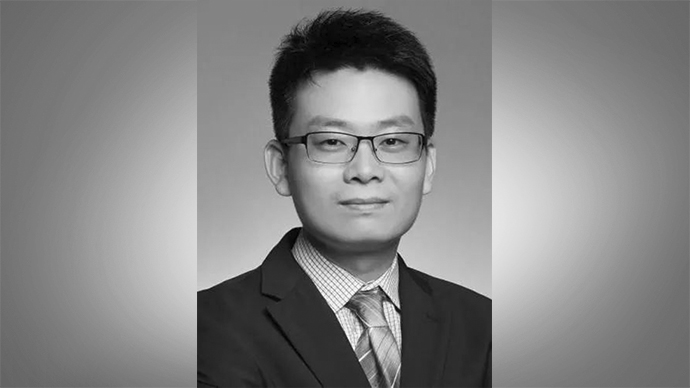
According to the School of Science of Southern University of Science and Technology, Jiang Wei, a professor of the Department of Chemistry at the school, died in Shenzhen at 23:25 on December 25, 2022 at the age of 41 after struggling with cancer for a year and a half.
Previously, in 2021, Professor Jiang Wei was approved by the National Science Fund for Distinguished Young Scholars; in 2020, he was elected as a Fellow of the Royal Society of Chemistry, and won the Supramolecular Chemistry Youth Innovation Academic Lecture Award of the Chinese Chemical Society.

Professor Jiang Wei, Department of Chemistry, School of Science, Southern University of Science and Technology.
According to the obituary, Professor Jiang Wei has made significant contributions to the development of supramolecular chemistry and the development of the Department of Chemistry of SUSTech. Professor Jiang Wei is humble and helpful in life, and is respected and loved by teachers and students.
The chemistry of molecular aggregates based on the formation of non-covalent interactions is known as supramolecular chemistry.
According to the WeChat official account of the School of Science of Southern University of Science and Technology released on November 19, 2021, the "Bionic Macrocyclic Supramolecular Chemistry" project of Jiang Wei's research group won the second prize in the natural science category of the Shenzhen Science and Technology Award. By simulating the recognition principle of biological receptors, the project designed and synthesized a series of new macrocyclic hosts with bionic structure characteristics, solved the problem of selective molecular recognition in water phase, created the research direction of biomimetic supramolecular chemistry, and provided analytical chemistry Fields such as biochemistry, chemical biology, and environmental chemistry offer potentially transformative research tools.
The above research results are considered to solve the recognized problem in the field of supramolecular chemistry - "selective recognition of polar molecules in aqueous phase", and provide a systematic solution. Related papers were published in the international academic journal "Journal of the American Chemical Society" (JACS, J. Am. Chem. Soc.) in September 2018.
According to the above news, Jiang Wei joined the Department of Chemistry of Southern University of Science and Technology as an associate professor in 2012 and was promoted to professor in 2018. In 2018 and 2021, he was supported by the National Natural Science Foundation of China "Excellent Youth Science Fund" and "Outstanding Youth Science Fund" projects. Jiang Wei's research group has long been engaged in the design and synthesis of new macrocyclic hosts, water phase molecular recognition and its analysis and detection, molecular machines and smart materials. In recent years, the research group has published more than 60 academic papers in international journals such as Nat. Chem., J. Am. Chem. Soc., Angew. Chem. Int. Ed. Related work has been highlighted by domestic and foreign academic institutions such as the Royal Society of Chemistry Chemical Science Blog, the American Chemical Society ACS Noteworthy Chemistry, the Royal Society of Physics Physics World and Phys.org, and the National Natural Science Foundation of China.
"On October 25, 2012, I came to Shenzhen for the first time. I came from Shenzhen North Railway Station that day..."
The article "[Under the Big Banyan Tree Growth Story] Jiang Wei: Reminiscing with SUSTech in 2012" published on the official website of SUSTech in 2019 stated that Jiang Wei is a generation of young teachers who grew up with SUSTech. At the end of October 2012, Jiang Wei joined the Chemistry Department of SUSTech. When talking about his field of supramolecular chemistry, Jiang Wei gave a vivid example: "If a molecule is compared to a fish, we are making a net, and this net is also a molecule. In order to catch the fish, we need to make a more Large molecules are used as nets. We call this "network" macrocyclic host molecules." Jiang Wei and his team synthesized a series of macrocyclic host molecules with unique structural characteristics by simulating the cavity characteristics of biological receptors. Realize the biomimetic simulation of biomolecular recognition and self-assembly.